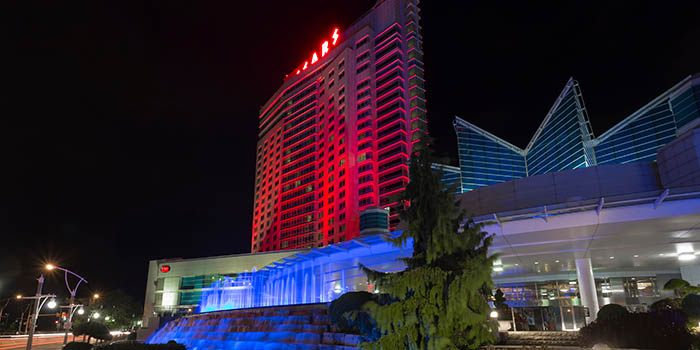PAGCOR Says Reports About Net Loss False

- Manila Bay reportedly accumulates $41.4 million in net losses
- Owner of the property PAGCOR turns down the claims
- Commission includes losses from the previous brand to operate at the spot
PAGCOR has turned down the Commission on Audit’s report that the Manila Bay Property has accumulated $41.4 million in net losses.
PAGCOR Rebuffs Watchdog Accusations of Net Losses
The Philippine Amusement and Gaming Corp. (PAGCOR) has refuted claims that it has accumulated a hefty net loss to the tune of $41.4 million. Profits have taken a tailspin in the company-owned Casino Filipino Manila Bay, reports said.
The Philippines Commission on Audit painted a different picture warning that not only was Casino Filipino a source of loss, but was it also at a risk of shutting down entirely. PAGCOR responded by arguing that the accusations were bogus.
PAGCOR continued by arguing that Casino Filipino had only been operational for two years now, as per a release issued on Tuesday, July 23. Plus, the information cited by the Commission on Audit was outdated as it included the deficit of a now defunct casino property, to name Casino Filipino Pavilion. In a word, the Commission cited figures that did not apply to the Manila Bay’s property in its time of operation.
The Commission’s report did only use the name of Manila Bay, arguing that in “the five consecutive years of incurring net loss,” the property demonstrated its inability to run the project. Instead, PAGCOR argued, the Commission should have excluded pavilion from the report.
Talking at Cross Purposes
The Commission and PAGCOR seem to be experiencing communication failure. The government watchdog is arguing that PAGCOR should device a feasible and realistic plan to dig Manila Bay out of debt whereas PAGCOR is patiently explaining that these net losses cannot be attributed to the property in the first place, creating even bigger confusion.
PAGCOR did concede that it was in the process of seeking ways to boost profits across the board and introduce segments that made sense and catered to specific demand, citing table games and VIP offers.
One of the strategies adopted by the company moving forward would be to introduce more opportunities for junket operators. Responding to allusions whether the property could be shut down, PAGCOR simply said that a binding contract with Vanderwood Management Corp. signed by the previous management barred PAGCOR from entertaining such a possibility.
Online Casinos in the Philippines Arriving
While PAGCOR is thrashing out the details with the regulator, the Philippines is reportedly preparing to establish a hub for digital casinos. The Philippines already has a large offshore gambling industry where estimated 140,000 Chinese worker to cater to mainland players. Now, the country is planning to grant these offshore casinos an official status and help boost the money they drive back into coffers.
The so-called Philippine Offshore Gaming Operators (POGO) will have to be given a good incentive to consider moving their operations into the aforementioned hubs, however. One such possibility is to grant POGO properties a five-year license instead of the current three-year one.
Plus, the hubs will make it easy for properties located there to comply and fulfil their tax and legal obligations to the state and avoid the risk of prosecution later on.
As an avid follower of sports and the newly recognized industry of esports, Heidi uses her expertise to help the team push out the best sports content. She is also continually learning more about the gambling industry in general and pushes out a variety of content.



